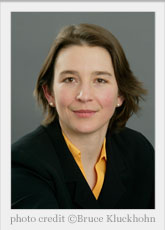 Slowly, ever so slowly, banks are being forced to clear away the fog and mirrors that have protected their balance sheets from the prying eyes of investors and sceptics.
Slowly, ever so slowly, banks are being forced to clear away the fog and mirrors that have protected their balance sheets from the prying eyes of investors and sceptics.
Last month, UK banks became the first in the world to disclose their total borrowing, known as leverage ratio, on a standardised basis.
They haven’t done this willingly – the Bank of England insisted – and their disclosures are all surrounded by lots of hemming and hawing about how the leverage rules are still changing.
The results are instructive. The UK’s five biggest banks are considered among the best capitalised in Europe on the traditional measure of core tier one equity divided by risk-weighted assets, which includes everything from home mortgages and small business loans to complex derivative contracts, each multiplied by a factor intended to reflect the amount the bank could lose. The ratios range from 12.3 per cent at HSBC down to 10.3 per cent at Royal Bank of Scotland.
The disclosed leverage ratios strip out the effect of risk modelling, which has the effect of more than doubling the size of every bank’s balance sheet and more than tripling that of Barclays. These numbers partly reflect the size of low-risk, high volume businesses. But they will be a boon to critics who think some banks have been tweaking their models to cut their capital requirements.
Read the rest of…
Brooke Masters: The Leverage Story Banks Want to Hide




